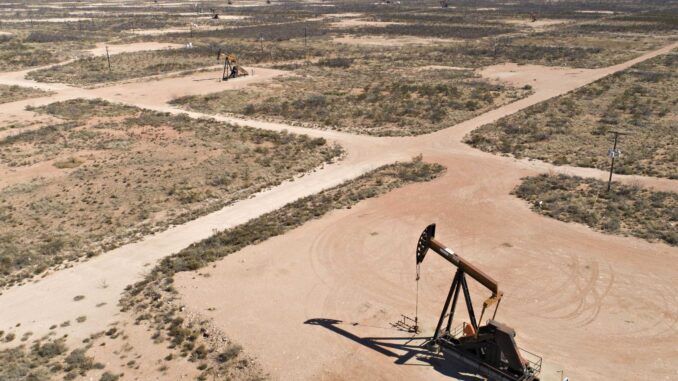Like oil and gas producers across the US and the globe, Diamondback Energy has been challenged to increase output to meet demand and tame energy prices.
Danny Wesson, Diamondback’s executive vice president and chief operating officer, ticked off the challenges as he addressed members of the Permian Basin chapter, Energy Workforce and Technology Council: Low oil inventories, an OPEC+ “that is squeezing at the seams to fit into their pants” and few long-cycle projects. Growth will come from short-cycle projects, mostly in the US, he added.
The demand outlook is uncertain and depends on what will come out of China and whether or not the US economy heads into recession, he stated.
“We have used every weapon we have to smooth the markets,” Wesson said, adding that if demand exceeds supply as expected, economies could be roiled by surging energy prices.
For Diamondback, which made two large acquisitions late last year, he said the company is always open for acquisition opportunities. But it is also in maintenance mode, planning to keep production flat and drilling around 330 wells in 2023.
With an audience dominated by service companies, Wesson observed that the sector is undergoing the same transition as exploration and production companies in focusing on fiscal discipline and returning capital to investors. Still, he pointed out, that is causing issues for the upstream customers.
“The thing we see as customers is a lack of investment in existing business, to maintain quality and get the same great product as when business was slower. That concerns us as customers.”
Service companies need to invest in their business, invest in their people in order to maintain that high quality of service “so when the call comes for us to grow, you can grow with us.”
He acknowledged that service companies are subject to supply chain issues, making it difficult to get the parts needed to do their work. Shoring up supply chains is important, he said.
Wesson said he believes the regulatory environment will get increasingly difficult, but the company will be able to manage that environment.
“What worries me most is the workforce and attracting good people to the industry,” he said. He pointed out that the pandemic changed people’s view of work, prompting them to focus on a work-life interaction.
“In this industry, it’s hard to transition to that work-life interaction, especially for people out on location. It’s not that they don’t want to work hard, they want the freedom to choose how and when to work hard,” he said. “This industry has never had to consider that, so we’re having to think outside the box.”
That also means raising pay is no longer the solution, he added, as workers are willing to take lower salaries to work at a job that lets them live the life they want to live.
Another concern is the retirement of industry veterans who are taking a lot of knowledge with them as they move onto the next phase of their lives, Wesson said. This upcoming generation of professionals need to soak up as much of that knowledge as they can and the industry needs to attract new and good people to what is becoming a high-tech industry.
“It goes back to being proud of the industry, being proud of how you do your job every day,” he said.
Taking pride is also important to helping the industry make its case that it’s being environmentally responsible and maintain its social license to operate. That includes cleaning up their footprint, or “leave a better wake behind us,” as Wesson put it.
“If we leave a better wake behind us, there’s no argument about the benefits we provide,” he said.




